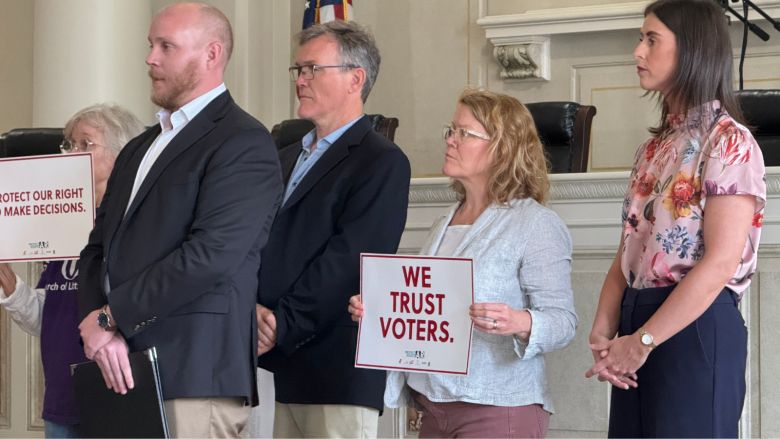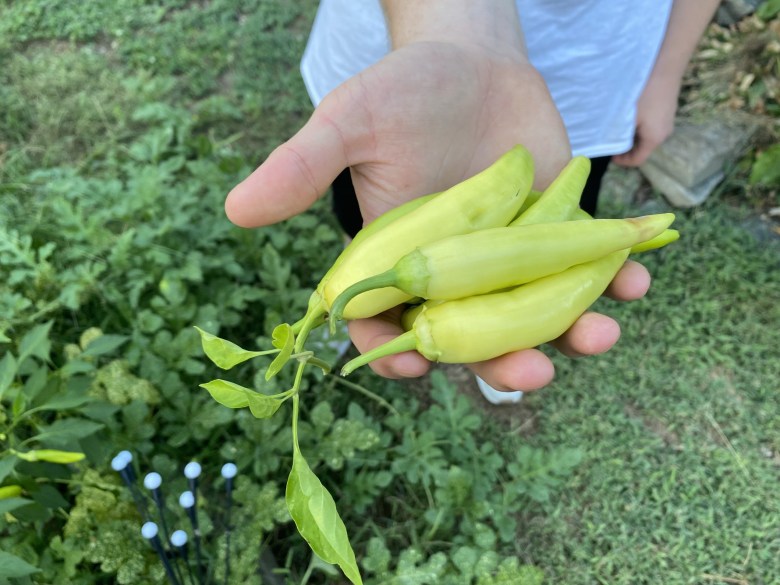A
federal court in Fayetteville on Wednesday ruled
two grassroots ballot question committees hoping to place measures on the 2026 ballot can intervene in a
federal lawsuit challenging several laws
passed by the Arkansas Legislature to restrict the initiative process.
The intervenors are
For AR Kids,
which is working on a proposed amendment about public education, and
Protect AR Rights
, described as “a citizen-led coalition dedicated to safeguarding the ballot initiative process.” Members of the first group include the Arkansas Education Association, the Arkansas Public Policy Panel, the Arkansas Retired Teachers Association and the Arkansas State Conference of the NAACP. The second group’s members include Arkansas Advocates for Children and Families, Arkansas Appleseed, For AR People, the Public Policy Panel and the NAACP.
The groups
filed a joint motion in May
to intervene in a lawsuit filed
by the League of Women Voters of Arkansas, among other plaintiffs.
The
League of Women Voters
‘ complaint asks a judge to strike down four laws just passed by the state Legislature this spring and three more passed in previous legislative sessions.
In their motion, the intervenors said they would also challenge two statutes that weren’t included in the League of Women Voters’ original lawsuit — Act 602 of 2025, which requires ballot titles to be
written at an eighth-grade reading level or below
, and Ark. Code Ann. 7-9-126, which requires a group circulating a ballot measure petition to collect a certain number of signatures
from at least 50 counties
(rather than 15 counties, as outlined in the state constitution).
According to the intervenors, intervention was necessary in this case because, while the intervenors’ goals are generally aligned with those of the original plaintiffs, they do not overlap perfectly. The plaintiffs and one of the intervenors — Protect AR Rights — are sponsoring dueling constitutional amendments that both aim to roll back changes the Legislature has made in recent years.
The League of Women Voters are
behind a proposal that would, among other things
, prohibit the Legislature from amending measures passed by the people through the initiative process, streamline the process for approval of ballot titles and legal challenges to those titles once approved, require separate votes on legislation and emergency clauses in the legislature separated by at least 24 hours, and define what paperwork must be submitted with signatures in order for a petition to be placed on the ballot. All told, they are challenging four acts passed in 2025 as well as three statutes enacted earlier.
Protect AR Rights
has also proposed a measure for the 2026 ballot
, and it differs from the plaintiffs’ measure in a few key areas. It challenges three additional 2025 laws and two other statutes not raised by the plaintiffs. The Protect AR Rights measure would also ensure due process for anyone whose signature on a petition is rejected by the state and would require the Legislature to refer any proposed changes to initiated acts to the people for a vote at the next general election.
In granting the intervenors’ motion, the
U.S. District Court for the Western District of Arkansas
first found the groups had standing to challenge Act 602 because
Protect AR Rights’ ballot title was rejected by
Attorney General Tim Griffin
for failing to comply with the reading-level requirement. (Under federal rules, the court noted, because one of the intervenors had standing to challenge one of the statutes at issue, all of the intervenors were deemed to have standing to challenge all of them.)
The court also said that, as part of the intervenors’ challenge, Griffin will necessarily be added as a defendant alongside current defendant
Secretary of State Cole Jester
.
Though unnecessary for purposes of granting the motion to intervene, the court also found that both groups had standing to challenge at least
one of the new laws passed this spring.
That law, Act 273 of 2025, says “[t]he Secretary of State shall not count signatures collected and witnessed by a canvasser if” he finds the canvasser has violated any Arkansas laws “regarding canvassing, perjury, forgery, or fraudulent practices in the procurement of petition signatures or any provision of the Arkansas Constitution applicable to the collection of signatures on an initiative petition or referendum petition during the current election cycle.”
The Eighth Circuit Court of Appeals found standing for a group to challenge a similar statute in South Dakota in 2022, the court said, because the statute “uses the threat of invalidating voter signatures to force compliance with laws that reduce that number of people willing and able to circulate petitions.”
The defendant in this suit opposed the intervention request. But so did the League of Women Voters and other plaintiffs. According to the court, the plaintiffs argued that the intervenors “lack a legally sufficient interest to warrant intervention” and that any interest the intervenors had in the litigation would be protected by the existing parties.
The court disagreed, holding the intervenors “do have an interest in this litigation based on the burden the challenged laws allegedly place on [intervenors’] protected speech” and that “Plaintiffs make a troubling assertion in their Response that leads the Court to conclude that Movants’ interests may not be adequately represented.”
Specifically, the court said, that “troubling assertion” was the plaintiffs’ argument that the intervenors’ goal was to “get approval of a measure that directly competes with the measure currently being circulated” by the plaintiffs. The court agreed with the intervenors that this admission “raises serious doubts that Plaintiffs will vigorously pursue the [groups’] common claims if they determine later in the litigation that they can get their measures on the ballot without challenging some of the laws in question.”
With the motion to intervene granted, the
intervenors’ complaint
will be filed, and the defendants will have 20 days in which to file an answer. There is also a motion for preliminary injunction, filed by the original plaintiffs on July 15, pending before U.S. District Court Judge Timothy L. Brooks.
It’s dragon-slaying time!
In a time when critical voices are increasingly silenced, the
Arkansas Times
stands as a beacon of truth, tirelessly defending the fundamental rights and freedoms within our community. With Arkansas at the epicenter of a sweeping culture war affecting our libraries, schools, and public discourse, our mission to deliver unflinching journalism has never been more vital. We’re here to “slay dragons” and hold power accountable, but we can’t do it alone. By contributing today, you ensure that independent journalism not only survives but thrives in Arkansas. Together, we can make a difference — join the fight.







